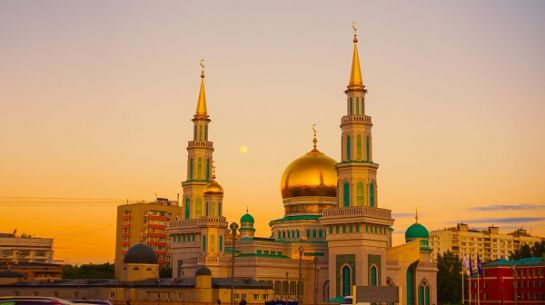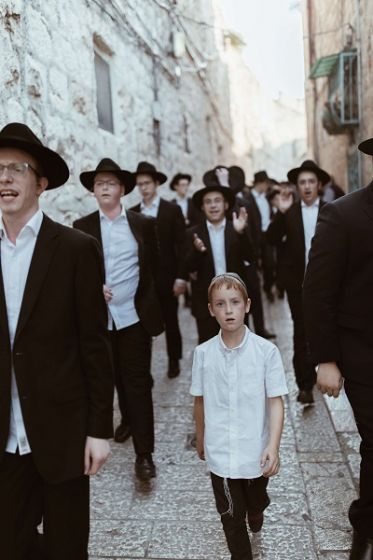 Every single major religion throughout history has placed huge significance on dying and what comes after death. Whether a religion believes in an afterlife or reincarnation, each religion has guidelines for how to conduct funeral ceremonies. From fasting to singing, each religion has uniquely specific funeral traditions that help people make sense of their mortality and bring families and communities together. Within each religion, the separate denominations and branches also have rituals that pertain to only their sect. These traditions provide a much needed familiarity when confronting the death and what comes after it.
Every single major religion throughout history has placed huge significance on dying and what comes after death. Whether a religion believes in an afterlife or reincarnation, each religion has guidelines for how to conduct funeral ceremonies. From fasting to singing, each religion has uniquely specific funeral traditions that help people make sense of their mortality and bring families and communities together. Within each religion, the separate denominations and branches also have rituals that pertain to only their sect. These traditions provide a much needed familiarity when confronting the death and what comes after it.
Funeral Traditions in Christianity
A typical Christian funeral service will be held several days after the death. Christian funerals will begin with an opening statement led by a clergyman of the Church. It is customary for funeral guest to wear black clothing. Prayers and hymns are read and sung throughout the funeral and play an integral role in memorializing a loved one.
A remembrance speech or eulogy is given by close family members and friends to honor the life of the deceased. Eulogies consists of reading Bible verses, poems, or recalling stories they have prepared ahead of time. The graveside services have some form of words of committal in which the minister reads a prayer for the deceased. As the committal is taking place, the coffin is lowered into the grave.
Christian funerals can vary greatly by denominations. There is less doctrine regarding specific ceremonial procedure that must be performed at the funeral. The most common tradition across Christian funerals is reading specific verses from the Bible. Most notably Psalm 23 and John 14: 1-3. Since there is less doctrine dictating how a Christian funeral should be performed, you see a lot of variance and personalization at the funeral services with regard to the atmosphere, decorations, and eulogies.
 Funeral Traditions in Buddhism
Funeral Traditions in Buddhism
Buddhist believe that life and death are a part of a cycle known as samsara, in which one’s actions in this life and all previous incarnations determine your future reincarnation. In Buddhist tradition, there is much more emphasis placed on the time leading up to death. When a Buddhist is approaching death, close friends and family members should sit with the dying person and help invoke calm and peaceful ways of being. Death is a natural and inevitable part of the lifecycle, and the dying person should be made to accept this reality. Friends and family should help the dying person reflect on his or her good deeds in this life, and the power those good deeds will have over his or her next incarnation.
When the person has died, according to the Last Rites of Amitabha, the body should not be touched or disturbed due to the belief that the soul doesn't leave the body immediately after breathing stops. The body must be completely cold before it can be washed and prepared for burial or cremation. The deceased should not be dressed in fancy clothes, but rather in the everyday clothes. If a casket or cremation urn is used, they should be plain with minimal designs. The casket should always be open for the duration of the funeral service. An altar may be placed near the head of the casket and may feature an image of the deceased, an image of the Buddha, candles, flowers, and incense. At a traditional Buddhist funeral, the family will wear white or cover their clothing with a traditional white cloth, along with a headband or armband. Mourners may also walk with sticks to symbolize that grief has left them the need for support.
Although Buddhists understand that death is not an end, only a transition from one life to another, it is acceptable to show grief. In doing so, friends and family members acknowledge the loss of their loved one.
 Funeral Traditions in Islam
Funeral Traditions in Islam
According to Islamic law, the body should be buried as soon as possible from the time of death. As soon as a Muslim person dies, it's customary to close the eyes and cover the body with a clean sheet. Autopsies are not acceptable in Islam as they are seen as a desecration of the body. Embalming and cosmetology are also not allowed unless required by state or federal law.
To prepare the body for burial, it must be washed and shrouded. Close same-sex family members are encouraged to prepare the body. The spouse may also perform the washing. The body should be washed three times to represent these three tenets:
- The body returns to the earth from which it was made
- The soul faces judgment
- The living are reminded that their time on Earth is limited and their opportunity to do good may end at any moment
To shroud the body, three clean white sheets should be laid on top of each other. The body should be placed on top of the sheets and then wrapped around the body. The shrouding should be secured with ropes, one tied above the head, two tied around the body, and one tied below the feet. Funeral prayers (Salat al-Janazah) should be performed by all members of the community at the mosque, though they should not be recited inside the mosque; rather, they should be performed in a prayer or study room, or in the mosque’s courtyard.
During burial, the grave should be dug perpendicular to Mecca and the body should be placed in the grave on its right side facing Mecca. Once the body is in the grave, a layer of wood or stones should be placed on top of the body to prevent direct contact between the body and the soil that will fill the grave. Then each mourner will place three handfuls of soil into the grave. Once the grave has been filled, a small stone or marker may be placed at the grave so that it is recognizable. It is prohibited to erect a large monument on the grave or to elaborately decorate the grave.
 Jewish Funeral Ceremonies
Jewish Funeral Ceremonies
The Jewish people hold the philosophy that one should embrace life while accepting the inevitability of death. The emphasis of Judaism is on how you should live your life and it does not specifically define an afterlife. However, it is implied that leading a praiseworthy life will prepare one for what comes after life. Jewish burials are to take place as soon as possible, typically the next day in a synagogue. There is no visitation by friends in the presence of the body before the funeral. Jewish funerals emphasize simplicity and a modest casket and decorations so that no distinction can be made between the rich and the poor. It is traditional Jewish practice to perform a ritual washing of the body (“Tahara”) and then to dress it in a plain burial shroud.
The service is conducted by a rabbi and begins with Keriah, where the rabbi will gather the mourners together and place a black ribbon on their outer garment. In some Jewish Orthodox communities, the garment is torn to symbolize:
- Since we are physical beings, we need to do something physical to express our grief
- It is a symbol of the tear in the fabric of the family after the death of a loved one
- It sets up a separation of status: prior to this moment, the mourners have had the responsibility of taking care of all the details of the funeral and now their responsibility shifts to allowing the community to take care of them.
The rabbi leads the service and reads the eulogy. A “minyan” (at least 10 Jewish adults) is required to recite prayers. At the cemetery, more prayers are read and the family members usually participate in placing dirt on the coffin before it is buried. This symbolizes their acceptance of the finality of death. The act of placing earth into the grave takes on a very important role in the service. In some communities, the entire casket is covered with earth. Often earth from the Land of Israel is also sprinkled on the casket.
What We Can Learn From Different Religions Funeral Traditions
It is clear that each religion has different laws that mandate how the funeral should be carried out. It is also clear that regardless of the religion, we all express grief emotionally in the same way. A woman weeping the loss of her husband in Germany is no different than a grieving widow in Nepal. Reverting back to the religious text, whether that is the Bible, Koran, or Pali Canon, mourners are encouraged to find strength and hope. This commonality reveals that at the core, funeral traditions serve to give surviving family and friends peace of mind that the soul of the deceased will transition to a better place.
Add Your Comment